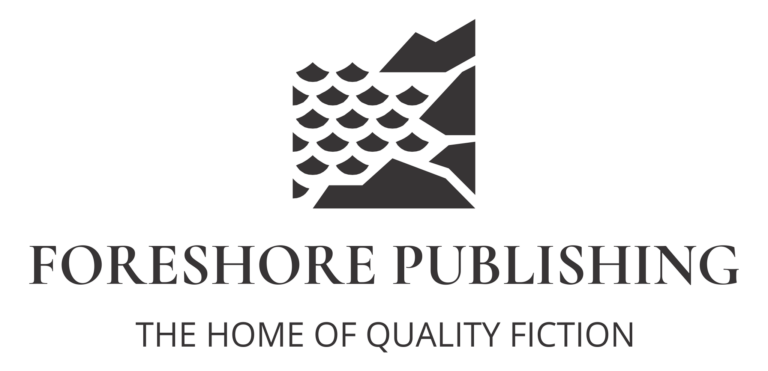
Author of children’s book, The Dog with No Fur -The Adventures of Leo, Michela Carbosiero talks about the inspiration behind her debut book and what’s coming next! Read on below to discover more about Michela, and Leo! … Could you tell us a bit about The Dog with No Fur -The Adventures of Leo? The Dog with No Fur is about a dog call Leo, born without any fur at all, who begins the book completely focused on one goal: to fix or hide his imperfections so he fits in and is not humiliated by other more popular dogs. But when nothing works Leo has to choose between hating himself and hiding away or standing out and feeling proud. The important lesson is loving yourself is the most important thing because everyone is special and unique. Leo is such a brilliant character. Where did the inspiration for him come from? The real Leo is a very special little dog. He has alopecia, which means he doesn’t have fur. But that never stops him from being the happiest dog with the brightest eyes and the kindest heart. Leo has a magical way of making people laugh—without even trying! He reminds us every day that joy doesn’t come from looking like everyone else. It comes from being proud of who you truly are. Transformation is a strong theme throughout the book. Was this always something you wanted to write about? I first wrote this story when I was just 14, while attending a hospital school and struggling with my mental health. Writing became my safe space, a way to express myself and transform something painful into something hopeful. You also include themes and issues that aren’t always talked about in children’s fiction, but you do it in such a sensitive and engaging way for the reader. Do you think there are more themes and issues that could be featured in fiction for young people? Through Leo, I found the perfect way to show children, and myself, that being different is not a weakness, it’s a superpower. When I was younger, I often felt “less than.” I worried every day that my differences made me weaker. But writing gave me confidence. It allowed me to create characters like Leo, who may be different, but in my eyes, shines brighter than the stars. His journey gave me a strength I didn’t know I had. As I watched this story unfold and grow, I realised how grateful I am, not just for writing, but for choosing myself. For choosing a life worth living. Leo’s story reflects my own journey he may have no fur, and I may not be perfect, but what I’ve learned is that self-love—real, unconditional self-love is what truly matters. What do you want readers to take away from this book? Kindness is key. And my greatest hope is that this book radiates kindness and hope to everyone who reads it. If my younger self could see me now, achieving a goal I once believed I wouldn’t live to reach, she would be proud. Proof that everyone has a place on this earth, and that we all carry a special presence. Being different is beautiful, and it’s something I would never change. What books/ stories/ authors have been an inspiration to you, and your writing? Julia Donaldson has always been a huge inspiration to me, and I adore Quentin Blake’s illustrations. When I was at school, I really looked up to Julia Donaldson’s work. Recently, I had the chance to watch her online course, Learn with Julia Donaldson: Create a Picture Book, and it truly inspired me to take the next step in my own creative journey! We’d love to know what’s up next for you. Are you writing anything new, or any other exciting news? I’m VERY excited about my next book, The Unique Universe: The Adventures of Leo, which will be out in 2026. It’s about a magical journey celebrating unique friends and unforgettable adventures. BUY THE BOOK Meet Leo — The Dog Who Learned to Shine Just as He Is! Now available for pre-order. Reserve your copy today! Add to Cart ABOUT THE AUTHOR Michela Carbosiero is a mental health advocate, social media content creator, and children’s book author driven by a deep passion for helping others. She believes that every person is wonderfully unique, and that individuality is something to be embraced and celebrated.

English author Charlie Gutsell’s Atlas trilogy, starting with Assault on Black Zone, is a crime thriller set in a futuristic, dystopian London where law and order are no longer in the hands of local police. Instead, the city—and the entire world—are ruled by a powerful authority headquartered on the moon. The story follows twin brothers Tyson and Jason Atlas, disillusioned officers faced with the obsolescence of their roles and the rising tyranny from above. Their paths collide with one of the most compelling villains in recent fiction: Hugo Ares—a notorious drug trafficker and criminal mastermind, now imprisoned for life in the moon’s notorious Black Zone Insane Asylum. What sparked the idea for Atlas? Being a lover of all things sci-fi, it seemed natural for me to write a story set amongst the stars. Stories such as Star Wars proved to be a great inspiration. Dealing with protagonists who face seemingly insurmountable odds—meaning that not only will they be put under great physical pressure, but emotional as well—offers them the chance to grow throughout their journey and become more relatable for the reader. It’s these action-packed stories that I love the most and wanted to share with readers. Tell us about your research and writing process for Atlas. There wasn’t too much research involved with this story. The main sources of research came from getting my astronomical facts right when discussing the planets and the natural events that occur within them. One aspect I take very seriously with the story is the concept of family. Having a younger brother myself, the dynamic between the two brothers in Atlas somewhat mirrors the relationship I have with my own brother, and this is greatly reflected within the story, especially during some of their lighter moments. Tell us a little bit about yourself and how you became a writer. Not being the most academic person, in truth, my love for writing came from when I was completing my English A-level at college and then my English undergraduate degree at the University of Brighton. For me, writing academically ensures one stays with the source material, both understanding it, and having the bravery to challenge it. Having completed my undergraduate dissertation on the language of salesmen, this gave me the freedom to put my own creative spin on some of their colloquial and sometimes crude language. When free writing, my favourite aspect is the chance to treat the paper as a blank canvas where I can put whatever weird and wonderful ideas pop into my head. I also think creative writing allows you to get lost in your work, letting you escape what may have been a rather dull day, and turn it into an action-packed thrill ride. This aspect of escapism is really what caused me to fall in love with writing. What writers are you influenced by, and how are those influences reflected in your novel? My main inspiration comes from the work of Dan Brown. For me, learning about some of the historical discoveries Robert Langdon makes in the books is as fascinating as the capers he gets himself into. I greatly admire both the attention to detail Brown shows when discussing his historical destinations, and the sense of intensity throughout the story. I am also a big film fan. Films such as Gladiator and Saving Private Ryan inspired me to write stories where I could place my own unique set of characters into an already chaotic world filled with action. What do you hope readers take away from reading your debut? I simply hope that readers take away the same feeling from reading the book as I did when writing it: allowing themselves the chance to briefly escape everyday life, to delve into worlds beyond their wildest dreams, and to be captivated by a great story with larger-than-life characters. What are you currently reading, and what books are you recommending to your friends? Apart from repeatedly reading my own work back for spelling mistakes, I continue to enjoy the work of Dan Brown, but also more autobiographical works from some of my favourite football players and coaches. What’s next for you? Any preview you can give readers? I’m currently almost finished with Atlas Part II, and aim to begin the third and final instalment in the summer of this year. Enjoying the work more and more with each passing page, I hope the readers enjoy the thrilling climax to the trilogy as much as I do. Atlas: Assault on Black Zone is set for publication in autumn 2025 by Foreshore Publishing. —

Foreshore has acquired world rights to a book from acclaimed writer Petra F. Bagnardi. It will be published by the Foreshore imprint, Foreshore Books, next Spring. The book was acquired by Phil M. Shirley, publisher-in-chief. “Petra F. Bagnardi is among the most exciting and interesting writers today and we are thrilled to be publishing her book,” said Shirley. “This book is coming out at the perfect time and will be one of the most read and talked about books of 2026.” Teach me how to fly is a multicultural contemporary novel set in the fictitious small Italian town, Orvello. The story centres around a teacher’s move from the bustling New York to the quiet town of Orvello. A splintered community and a challenging class are just the start of his problems. Blending New York and Italy, this story is for the enjoyers of ‘Stoner’ (John Edward Williams) and ‘Dead Poets Society’ (N.H. Kleinbaum). Petra F. Bagnardi is a writer, screenwriter, and poet. Her writing has received awards and notable mentions: The Literary Classics Seal of Approval; Library Journal Self-e Selection; The Royal Dragonfly Book Award, and more. Her poetry has been published by various literary journals and magazines including, Masque & Spectacle Literary Journal, Punk Noir Magazine, Poetica Review, Drawn to the Light Press, and more. Petra was short-listed in the Enfield Poets’ 20th Anniversary Poetry Competition and won second place in the Wax Poetry and Art Magazine’s Poetry Contest. She has also worked for the Italian TV network, RAI.



